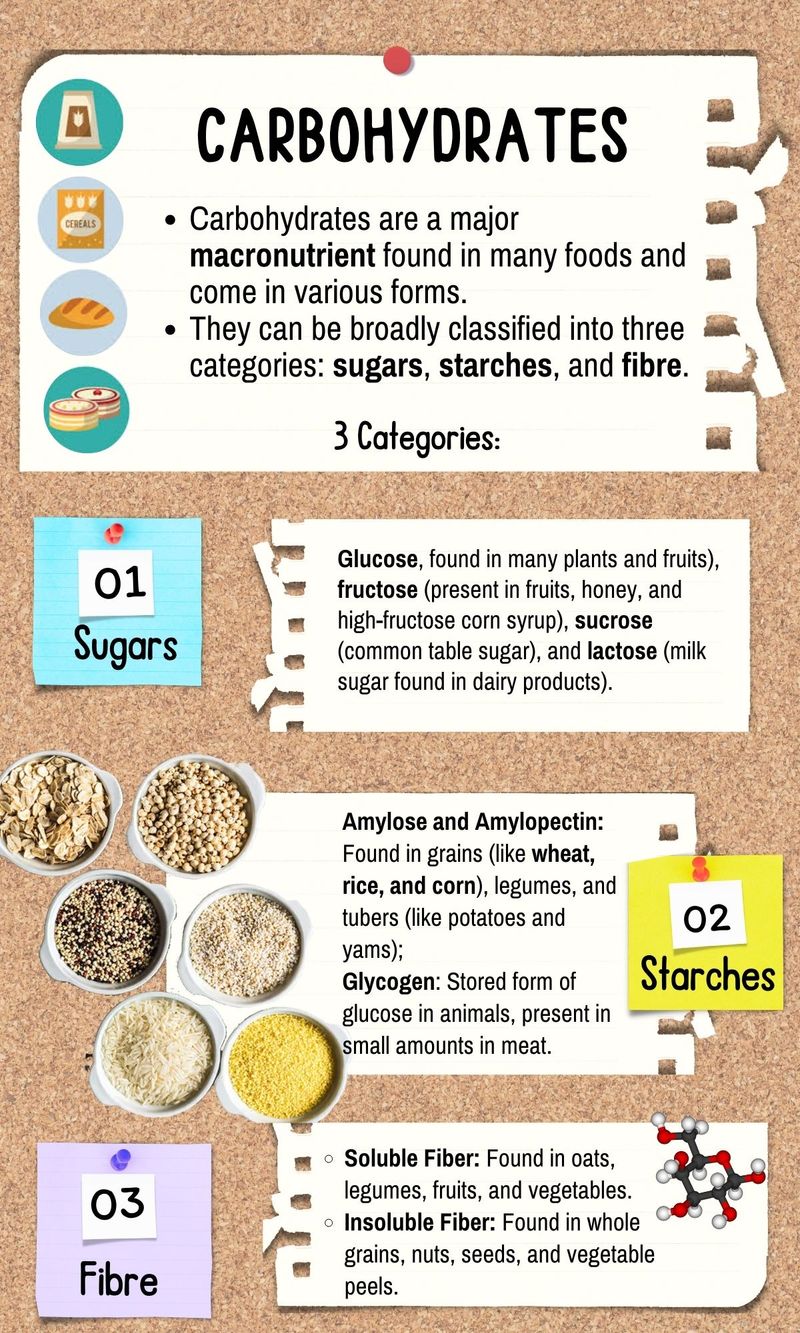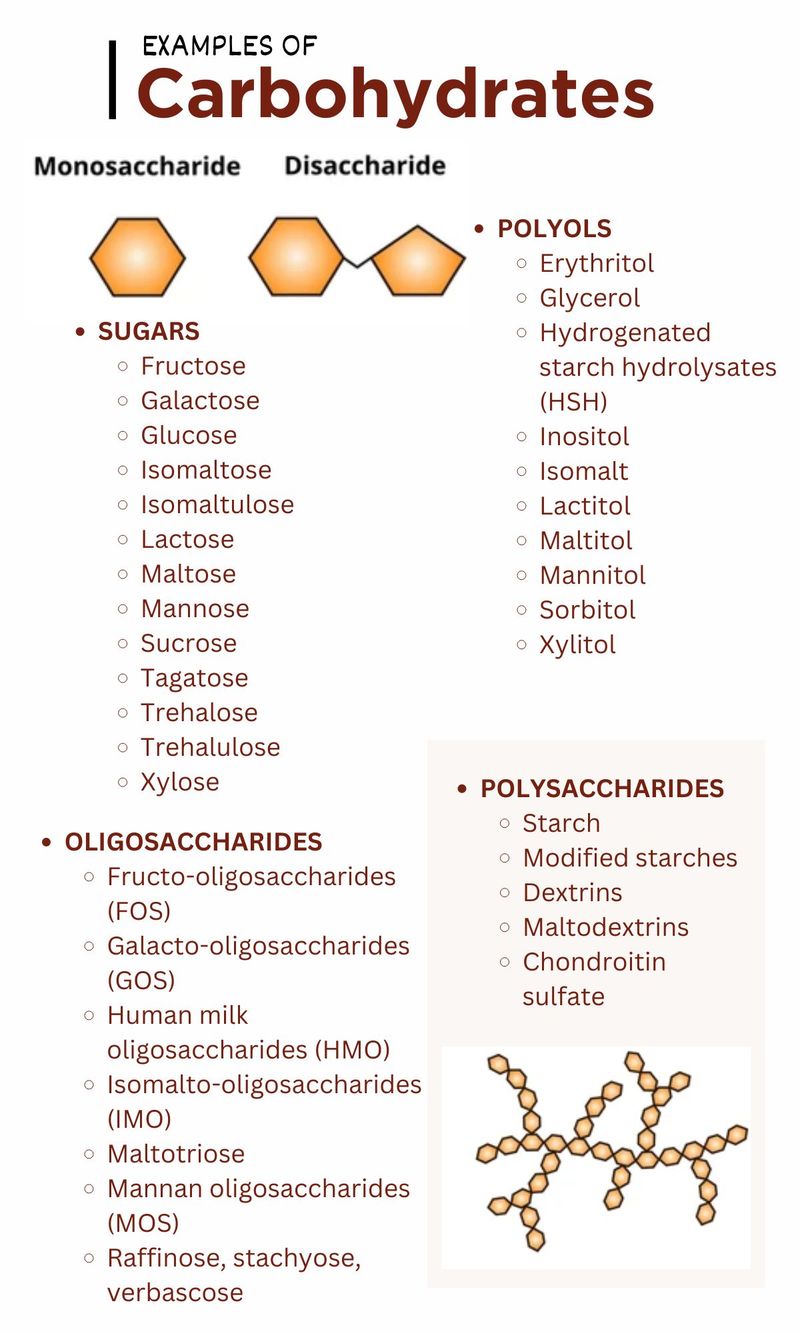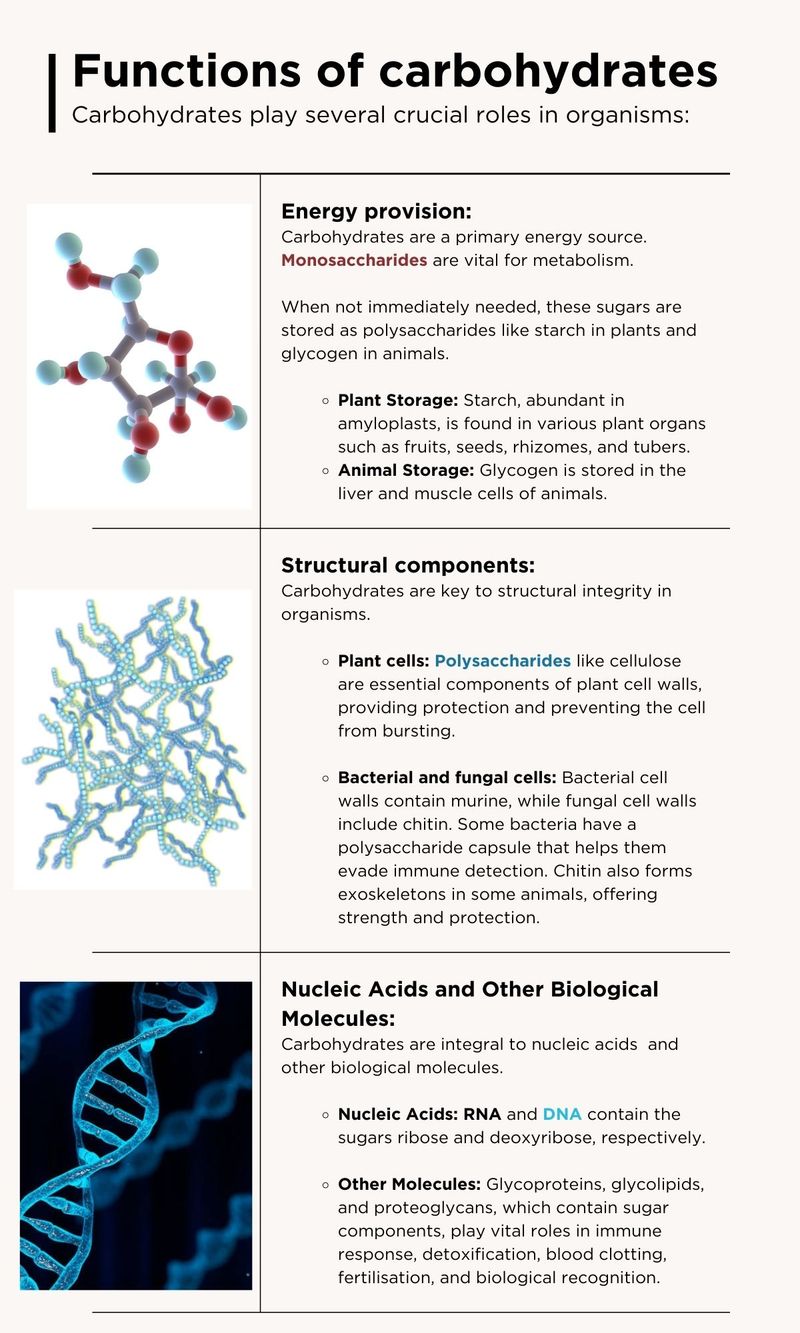
“Carbohydrate toxicity” is a subject under closer scrutiny among medical scholars.
It’s an informal term, yet one that’s increasingly used to mean something that’s already widely known, i.e. that excessive carb intake can lead to a raft of undesirable health consequences.
But how can dietary carbohydrates, including sugars and starches – essential sources of energy for the body – be considered “toxic” (i.e. poison)?
It’s all about levels, it turns out. The term "carbotoxicity" underscores the fact that a high-carb diet lies at the root of rising global health challenge. A number of landmark studies bear this out.
Good carbs vs bad carbs? Studies show that reducing intake of refined carbohydrates and sugars, and opting for complex carbohydrates from whole grains, vegetables, and fruits, help mitigate a number of health risks.

Landmark studies
One research specifically refers to “carbotoxicity”. It highlights some of the ill health effects of a high-carb diet, including:
- Metabolic syndrome/cardiovascular disease,
- Insulin resistance/reduced insulin sensitivity,
- Glycaemic index/load,
- Inflammation,
- Weight gain,
- Dyslipidemia, and
- Chronic diseases.
Carbotoxicity—Noxious Effects of Carbohydrates is a review conducted by researchers in 2018 at the University of California, which outlined the potential negative health effects of excessive carbohydrate intake. The authors highlighted the mechanisms by which high-carb diets might contribute to these problems. (by Luis EC et al. published in Pharmacological Research).
Excessive intake of carbs, particularly refined sugars, and fructose promotes fat accumulation in the liver, triggering inflammation and insulin resistance. Its consumption is also known to impair gut health, leading to increased inflammation.
Moreover, a chapter from the Yearbook of Paediatric Endocrinology explored the concept of carbotoxicity and its potential link to various health issues in children (by Chicco A. et. al.)
Chronic disease promoter
Many of the scientific basis for understanding the concept of carbohydrate toxicity are open-sourced:

In a January 2021 article published in Molecular & Cellular Oncology, scientists led by Aitziber Buqué stated: “carbohydrate-rich diets have been consistently associated with detrimental effects for human health, including diabetes and obesity. Moreover, high glucose levels appear to mediate immunosuppressive effects in preclinical tumour models.”
The researchers cited studies in mouse models, which showed that continuous or intermittent ketogenic diets improve organismal fitness and extend their healthspan. “Anectodical evidence”, they added, suggests similar effects in humans.
While that is not a solid, direct cause-and-effect evidence of carbotoxicity, a 2017 landmark “prospective” study by a team led by Ravichandran M, and published in the journal Cell Metabolism made this bold claim: Dietary carbohydrates impair healthspan and promote mortality.
135,000
Number of participants from 18 countries in the PURE study, which shows high-carb intake impairs health span and promote mortality.This study, named PURE, found that in >135,000 participants from 18 countries, nutritive carbohydrates increase early human mortality.
Here's the surprising part: the researchers stated that dietary fat reduces it.
The PURE study group wrote: “It has been known since the 1930s that global reduction of food uptake, so-called calorie restriction, extends the lifespan of rodents, other model organisms, including rhesus monkeys, and possibly humans due to an interacting set of experimentally established mechanisms.”
The implication is huge — it calls for a fundamental change of current nutritional guidelines.

In general, it refers to excessive consumption of carbohydrates, particularly refined carbohydrates and sugars, and its effect on health.
This term is used to describe the toxic-like impact that high carbohydrate intake can have on the body. Key aspects of "carbotoxicity" include blood sugar spikes, weight gain and obesity, inflammation, metabolic syndrome, energy crashes, gut health issues, and nutrient deficiency.
Where excess carb intake leads
Research shows that excessive carb intake leads to long-term debilitating health effects, in terms of the following:
Metabolic syndrome: It is a condition that includes a cluster of risk factors specific for cardiovascular disease. A 2015 study (High carbohydrate intake from starchy foods is positively associated with metabolic disorders: a Cohort Study from a Chinese population) published in Nature, has found that high carbohydrate intake from starchy foods is positively associated with metabolic disorders.

Insulin resistance: Carbohydrate intake plays a crucial role in insulin sensitivity and the development of Type 2 Diabetes Mellitus (T2DM). In Regulation of Macronutrients in Insulin Resistance and Glucose Homeostasis during Type 2 Diabetes Mellitus, researchers led by W. Yang at the Department of Nutrition, Texas A&M University, published their study in journal Nutrients on (November 4, 2023). It states: “Overnutrition-induced obesity is a major risk factor for the development of insulin resistance and T2DM. The intake of macronutrients plays a key role in maintaining energy balance.”
• The three primary macronutrients are carbohydrates, proteins, and fats.
• Each plays a unique and crucial role in the body's metabolism, energy production, and structural integrity.
Glycaemic index and load: It measures how quickly carbohydrates raise blood sugar levels and their potential impact on health. In an article titled “A good guide to good carbs: The glycemic index” (Harvard Health Publishing, April 14, 2023), authors said a serving of white rice has almost the same effect as eating pure table sugar — a quick, high spike in blood sugar. Picking good sources of carbs can help you control your blood sugar and your weight.
Inflammation: A number of studies have also explored the link between high carbohydrate intake and chronic inflammation. Excessive intake of carbs, particularly refined sugars, and fructose promotes fat accumulation in the liver, triggering inflammation and insulin resistance. Its consumption is also known to impair gut health, leading to increased inflammation.
12-year study
A significant Harvard study showed that people who improve their diets over time by consuming more whole grains, vegetables, fruits, nuts, and fish – and reducing their intake of red and processed meats and sugary beverages – may significantly lower their risk of premature death,
This study is the first to show that improving diet quality over at least 12 years is linked to lower total and cardiovascular mortality, highlighting the importance of maintaining healthy eating patterns.
The research was published in the July 13, 2017 issue of the New England Journal of Medicine.
"Overall, our findings underscore the benefits of healthy eating patterns, including the Mediterranean diet and the DASH diet. Our study indicates that even modest improvements in diet quality could meaningfully influence mortality risk, while worsening diet quality may increase the risk," said lead author Mercedes Sotos-Prieto, who conducted the study as a postdoctoral fellow in the Harvard Chan School Department of Nutrition.
More recent studies confirm as much, i.e. that low-carb and low-fat diets may help people live longer and healthier lives. For example, the Journal of Internal Medicine published on May 3, 2023 results of a "prospective cohort" study which shows that low-fat and healthy low-carb diets are associated with lower rates of heart disease, various cancers, and premature death – from all causes.
• Instead, it emphasises the consumption of proteins, fats, and non-starchy vegetables.
• The primary goal of a low-carb diet is to help individuals lose weight and improve certain health conditions by lowering blood sugar levels and improving insulin sensitivity.
• The mechanism behind this is now well understood: Excessive intake of carbs, particularly refined sugars, and fructose promotes fat accumulation in the liver, triggering inflammation and insulin resistance.
• Its consumption is also known to impair gut health, leading to increased inflammation.
So is obesity, induced by over-nutrition, a sign of carbotoxicity?
One study suggests an answer: On November 4, 2023, researchers led by W. Yang of the Department of Nutrition at Texas A&M University, published their study in the journal Nutrients ("Regulation of Macronutrients in Insulin Resistance and Glucose Homeostasis during Type 2 Diabetes Mellitus") which states: “Overnutrition-induced obesity is a major risk factor for the development of insulin resistance and T2DM. The intake of macronutrients plays a key role in maintaining energy balance.”
This particular study specifically referred to fructose, dietary fiber, saturated and unsaturated fatty acids, and amino acids. "Precisely adjusting the beneficial food compound intake," they stated, "is important for the prevention of insulin resistance and T2DM.”
Moreover, researchers at the University of Southern California investigated the association between dietary patterns and mortality (life expectancy). Interestingly, the study led by Bhupathiraju SN and published in 2023, suggests that both very high and very low carbohydrate intake might be linked to a higher risk of early death.
Carb-rich regional diets
East and Southeast Asia
Rice-based diets: This is a staple across much of East and Southeast Asia, including China, Japan, Korea, Vietnam, and Thailand. Rice provides a significant amount of complex carbohydrates. Other carbohydrate sources include noodles, dumplings, and sweet potatoes.
South Asia (India)
Dal and Roti: This classic combination provides a good balance of protein (dal - lentils) and complex carbohydrates (roti - flatbread). Other carbohydrate sources include rice, potatoes, and various dals.
Latin America
Corn-based diets: Corn (maize) is a major source of carbohydrates in Central and South America. It's consumed in various forms like tortillas, tamales, and polenta. Beans and rice are also staples in this region.
Mediterranean Diet
Whole Grains and Fruits: While not as high-carb as some others, the Mediterranean diet emphasizes whole grains like wheat, barley, and brown rice. It also incorporates fruits, a natural source of simple carbohydrates.
Sub-Saharan Africa
Starchy Roots and Tubers: Yams, plantains, cassava, and sweet potatoes are all important carbohydrate sources in this region. They are often paired with beans or lentils to provide protein.
Takeaways
- Experts point out that the type – and amount – of carbohydrates consumed matters.
- Carbohydrates are a vital macronutrient for human health.
- Complex carbohydrates found in whole grains, fruits, and vegetables are generally considered healthier than refined carbohydrates like white bread and sugary drinks.
- A healthy low-fat diet is characterised by a low intake of saturated fat and high intakes of plant protein and high-quality carbohydrates.
- While some studies suggest a link between high-carb intake and chronic diseases, a definitive cause-and-effect relationship has not been established.
- Individual needs and health conditions can influence how someone tolerates carbohydrates.
- Further research is needed to fully understand the complex relationship between carbohydrates, gut microbiota, and overall health.
- Rather than a blanket condemnation of carbs, or the entire macronutrient group, the focus should be on consuming a balanced diet with a variety of nutrient-dense carbohydrates.
- The key is balance and moderation.
[This is not medical advice or diagnosis. Please consult your doctor and/or nutritionist for guidance/personalised advice on a healthy diet specific to your condition.]










